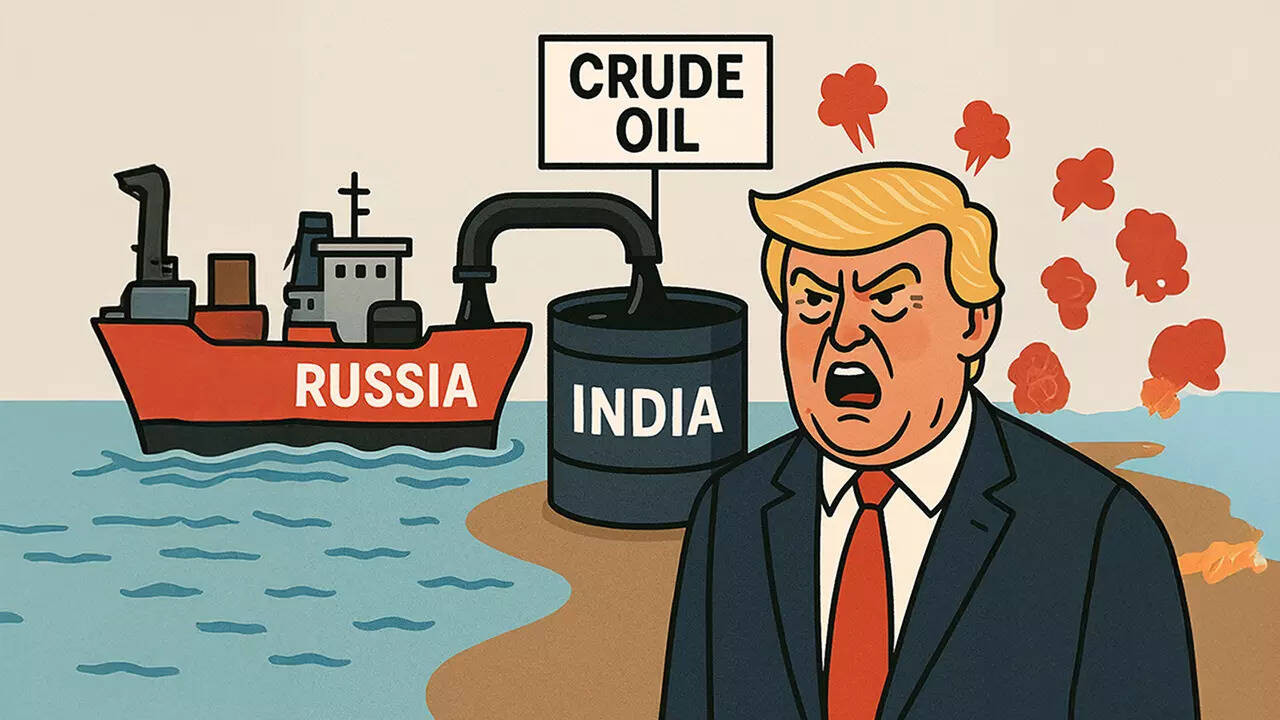Indian oil refiners are halting new Russian crude orders following fresh US and EU sanctions targeting Russian energy giants. This strategic shift, driven by a need for clarity and payment facilitation, sees India increasing imports from the US and Middle Eastern nations.
Navigating Murky Waters: How New US Sanctions Are Shaking Up India’s Russian Oil Trade
The global oil market is never short on drama, and the latest twist involves a tightening of US sanctions, leaving Indian refiners in a state of cautious uncertainty. The flow of Russian crude, which has become a significant component of India’s energy mix, is facing potential headwinds. Let’s dive into what’s happening and what it means for India’s energy landscape.
For months, India has strategically benefited from discounted Russian crude, a consequence of Western nations shunning Russian oil following the invasion of Ukraine. This access has been a boon, helping to fuel India’s burgeoning economy and providing consumers with relatively stable fuel prices. However, this comfortable arrangement is now being tested.
Recent reports indicate that Indian refiners are pausing new orders of Russian oil, adopting a “wait-and-see” approach. This hesitation stems from the US Treasury’s increased vigilance and stricter enforcement of sanctions aimed at curbing Russia’s oil revenue. The sanctions target entities involved in transporting and trading Russian oil priced above the G7’s price cap of $60 per barrel. While India hasn’t formally endorsed the cap, the heightened scrutiny is creating apprehension.
The core issue is the potential for secondary sanctions. Refiners fear that processing Russian crude could inadvertently expose them to penalties from the US, jeopardizing their access to international financial systems and potentially damaging relationships with Western partners. It’s a complex web of international finance and geopolitics, and Indian companies are treading carefully. The ramifications extend beyond just the price of crude; it’s about access to markets, lines of credit, and overall business stability.
This doesn’t necessarily signal a complete halt to Russian oil imports. It’s more of a strategic pause, a recalibration. Refiners are likely assessing the fine print of the sanctions, seeking clarification from legal experts, and exploring alternative payment mechanisms to mitigate risks. The goal is to continue accessing affordable energy without running afoul of US regulations.

A Shift Towards US Crude?
Interestingly, while Russian oil imports face uncertainty, there’s a simultaneous surge in India’s imports of US crude. Data shows these imports are at their highest level since May 2022. This could be a strategic move by Indian refiners to diversify their supply sources and reduce reliance on any single origin, especially one subject to geopolitical volatility. It also presents a compelling alternative, mitigating the risks associated with processing Russian oil.
The increased demand for US crude is good news for American energy producers. It solidifies the US as a key energy partner for India, fostering stronger trade relations and potentially leading to further collaboration in the energy sector.
The Broader Impact on India’s Energy Security
The current situation highlights the delicate balancing act India must perform to ensure its energy security. The nation’s rapidly growing economy demands a reliable and affordable energy supply. Russian oil has played a crucial role in fulfilling this need. However, India also maintains strong diplomatic and economic ties with the United States and other Western nations. Navigating these competing interests requires careful diplomacy and strategic decision-making.
India’s long-term energy strategy will likely involve diversifying its energy sources, investing in renewable energy, and strengthening partnerships with a range of oil-producing nations. See how India is planning its power future here. This diversification is crucial to insulate the nation from geopolitical shocks and ensure a stable energy supply for its growing economy.
The Road Ahead: Navigating the New Normal in Oil Imports
The impact of these sanctions is still unfolding, and the future of India’s Russian oil trade remains uncertain. Much will depend on the clarity and enforcement of US sanctions, the willingness of Indian refiners to navigate the complexities, and the availability of alternative energy sources. One thing is clear: the global oil market is a dynamic and interconnected system, and India must adapt to the evolving landscape to secure its energy future. The next few months will be crucial in determining the long-term implications of these sanctions and the future of India’s energy relationships.







